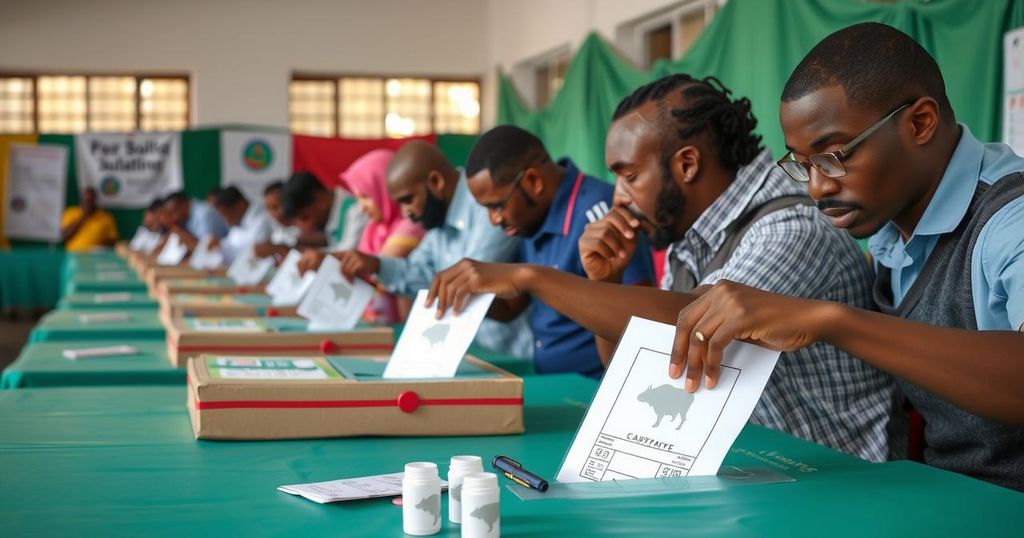Comoros Elects Parliament Amidst Political Tensions and Allegations

Voters in Comoros are casting ballots today for a 33-seat parliament, following President Azali Assoumani’s criticized reelection last year. Approximately 338,000 individuals are eligible to vote, amidst allegations of authoritarianism against the incumbent. While opposition groups are divided on participation, the election results are expected by January 17.
Voters in the Comoros island nation are participating in parliamentary elections for the 33-seat legislature on Sunday, a year after President Azali Assoumani’s contested reelection. Polling stations opened at 8 a.m. local time, with an estimated 338,000 voters expected to cast their ballots. This election follows January 2020’s parliamentary vote, amidst allegations from opposition factions of electoral irregularities during Assoumani’s previous victory, which the ruling party staunchly refutes.
The Supreme Court has authorized nearly 100 candidates to run for the parliament, with concerns raised by Assoumani’s adversaries regarding his authoritarian approach, and suspicions surrounding his son, Nour El-Fath, in preparation for a potential succession. Notably, Assoumani has maintained control since assuming power through a coup in 1999 and has since navigated three electoral cycles. In a controversial move last year, Assoumani granted his son extensive powers over the administration of government affairs.
While certain opposition groups, including Juwa, spearheaded by former President Ahmed Abdallah Sambi, advocate for a boycott of the elections, there are factions that dismiss such calls. Hamidou Karihila, representing the opposition party Hope of the Comoros, argued that participating in the elections would emphasize the inherent weaknesses of the current regime and hasten its eventual collapse. The polls are scheduled to conclude at 4 p.m., with election results anticipated by January 17th.
This parliamentary election in the Comoros is particularly significant as it marks a pivotal moment in a country that has experienced political upheaval and governance challenges. President Azali Assoumani has been a central figure in Comorian politics, having first seized power in a coup over two decades ago. His administration has faced criticism for alleged authoritarian practices, particularly in light of his recent actions to consolidate power and promote his son as a successor. The context of this election, coming after claims of electoral fraud in the previous presidential election, highlights the tensions between the incumbent government and opposition parties. With a large number of candidates being vetted for this election, the stakes for both the ruling party and opposition groups are notably high, indicating the potential for further political discord in the archipelago.
As the Comoros embarks on its parliamentary elections, the political landscape remains fraught with tension. The opposition’s allegations against President Azali Assoumani and suspicions of dynastic succession reflect deep-seated concerns regarding the future of governance in the archipelago. While some factions opt to engage in the electoral process to highlight regime flaws, others choose to boycott, underscoring divisions within the political sphere. The outcome of this election could be crucial in shaping the trajectory of democracy and governance in the region.
Original Source: www.voanews.com








